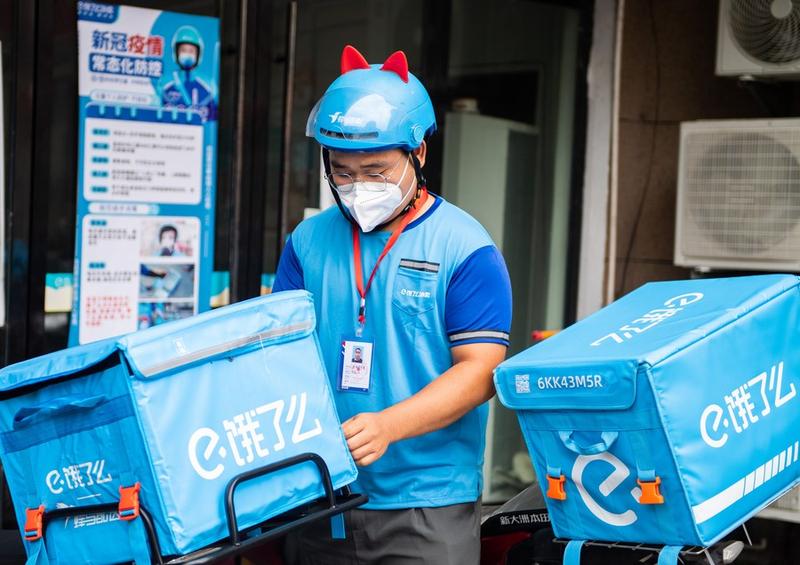


The greater protection afforded to workers' rights in the food-delivery and car-hailing industries over the past year illustrates how a talking point at China's "two sessions" can result in swift and solid action to tackle thorny problems.

Delivery man Yan Yingzhao prepares for a delivery order in Yongding District of Zhangjiajie, central China's Hunan Province, Aug. 9, 2021. (Xinhua/Chen Sihan)
A year ago, national legislators and political advisers called for new policies on the protection of laborers' rights in the new economy, issuing their call during the annual sessions of the National People's Congress (NPC) and the National Committee of the Chinese People's Political Consultative Conference (CPPCC).
They urged efforts to clarify the responsibilities of online platforms, such as food-delivery apps, and to tackle the lack of guarantees for workers regarding occupational injuries.
"We pay great attention to suggestions and proposals submitted by legislators and political advisers," said an official of the Ministry of Human Resources and Social Security.
After thorough discussions and careful studies, a guideline, which incorporated the opinions of legislators and political advisers, was unveiled jointly by seven central government departments in July. The document emphasized that platform companies should shoulder their due responsibilities in protecting the lawful rights and interests of workers.
Over the past months, most of the top platforms have taken action in line with the guidelines, including building channels of expression for workers and mechanisms for communication and consultations, improving their rules and algorithms, and stepping up supervision over labor dispatching partners, the official said.
The official said that many suggestions and proposals are targeted and practical, and the ministry will continue to heed and adopt the opinions of legislators and political advisers in the future.
The guideline was only one of the numerous policy improvements prompted by the "two sessions."
Last year, offices and departments under the State Council handled 8,666 suggestions from NPC deputies and 5,718 proposals submitted by CPPCC members, accounting for 96.4 percent and 93.4 percent of the total numbers of suggestions and proposals, respectively.
Relevant departments adopted more than 4,300 pieces of advice and subsequently introduced over 1,600 policy measures.
The fifth annual session of the 13th NPC is scheduled to open on March 5, and the fifth session of the 13th CPPCC National Committee is set to begin on March 4.
